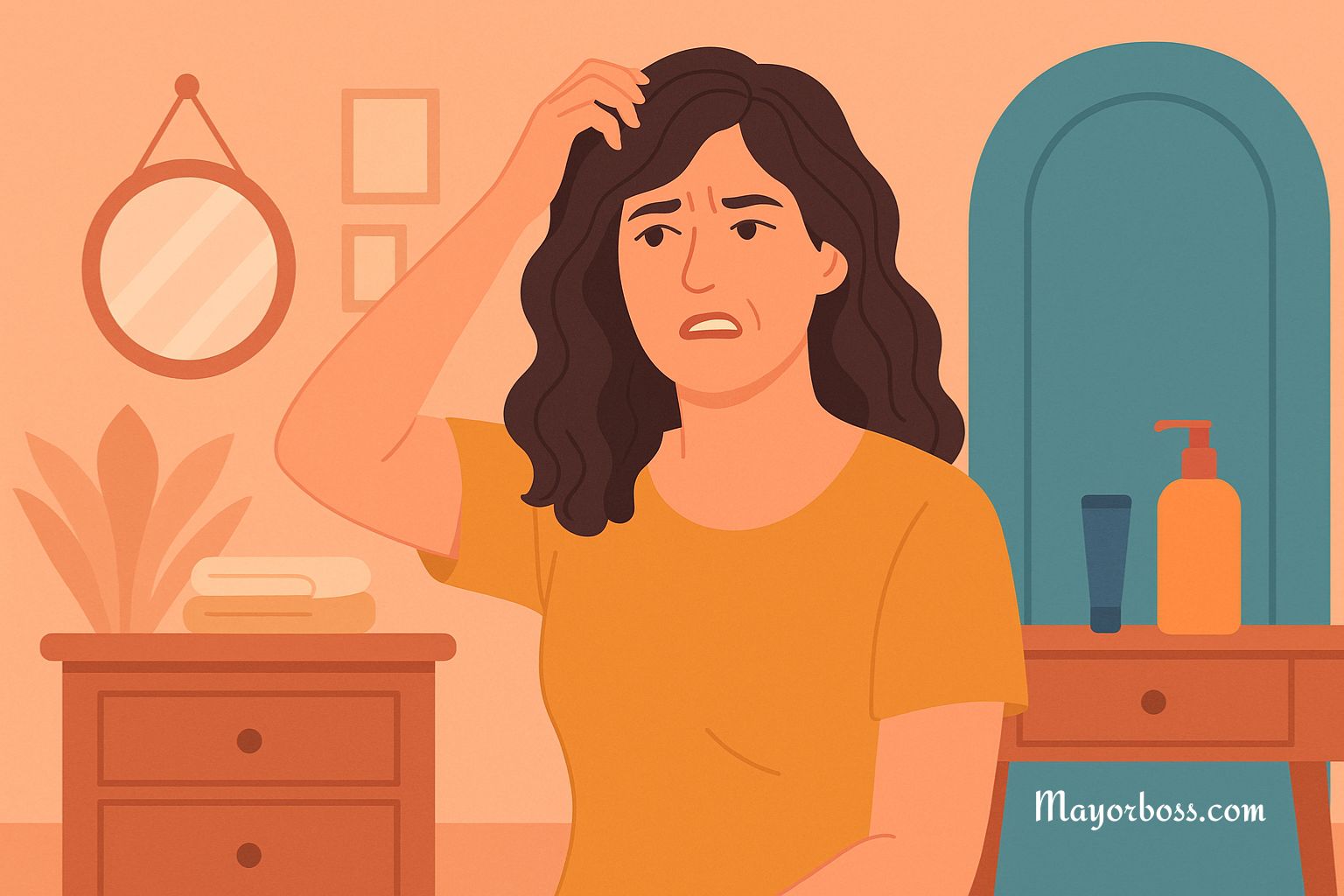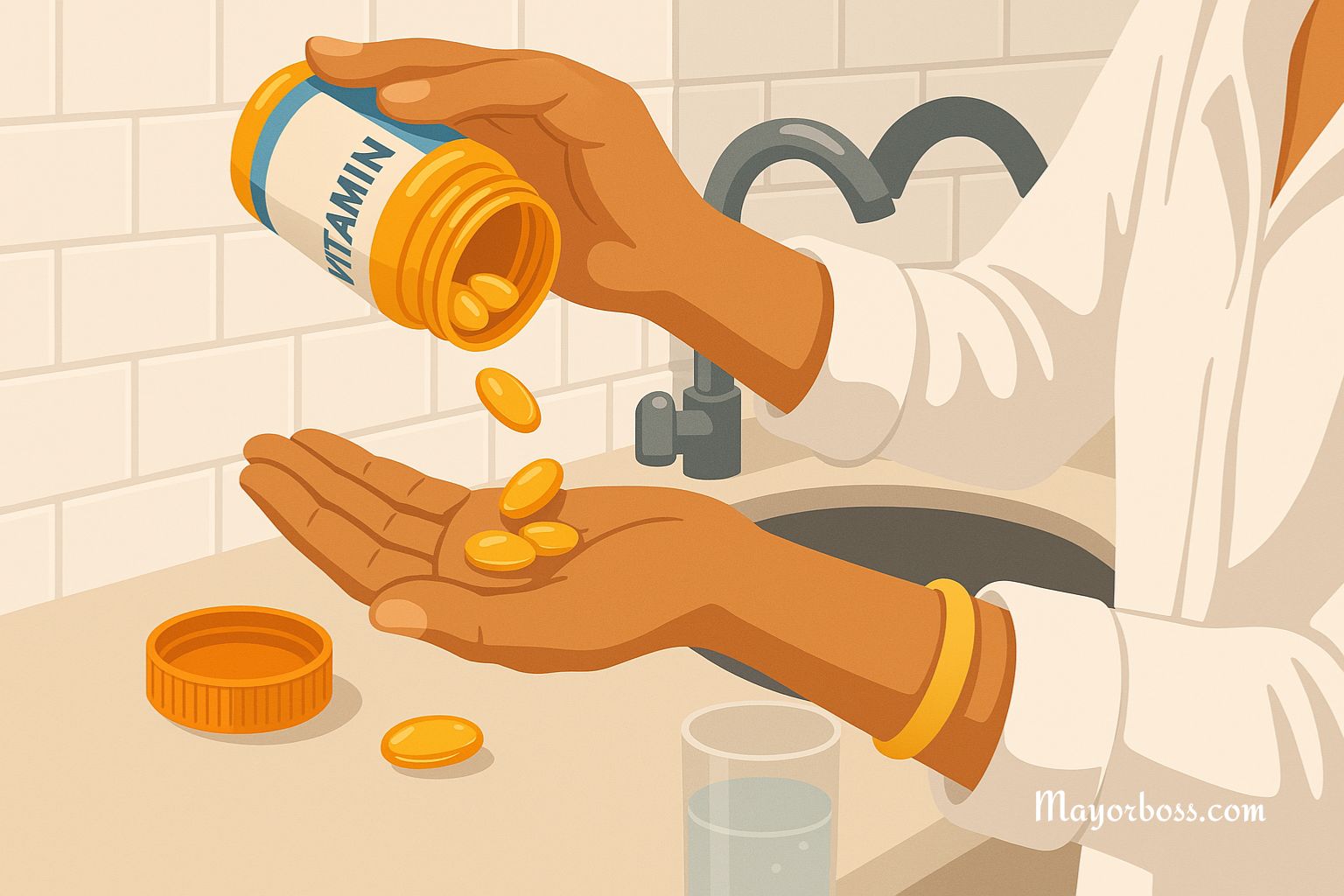Itchy Scalp? Here’s What Your Body Is Really Saying
An itchy scalp happens when the skin on your head becomes irritated. This irritation can come from dryness, inflammation, infection, or even allergic reactions. Sometimes, it’s a one-time problem. But if it keeps coming back or gets worse, it needs attention.
Let’s look at the most common causes and what they mean for your health.

1. Dry Scalp
One of the most common reasons your scalp itches is simple dryness. Like the rest of your skin, your scalp needs enough moisture to stay healthy. When it becomes dry, it can feel tight, flaky, and itchy.
What your body is saying:
“You might be dehydrated, using harsh shampoos, or living in dry air.”
What helps:
Use a gentle, moisturizing shampoo. Avoid hot water when washing your hair. Make sure you’re drinking enough water throughout the day.
2. Dandruff
Dandruff shows up as white or yellow flakes. It’s often caused by a condition called seborrheic dermatitis. This happens when your skin produces too much oil and becomes irritated by a natural yeast that lives on the skin.
What your body is saying:
“Your scalp is inflamed and reacting to too much oil or yeast growth.”
What helps:
Look for an anti-dandruff shampoo with ingredients like zinc pyrithione, ketoconazole, or selenium sulfide. Be consistent with use, even after symptoms improve.
3. Scalp Psoriasis
Psoriasis is an autoimmune condition that speeds up skin cell growth. It causes thick, scaly patches that can be itchy, painful, or even bleed. If you notice silvery scales or red patches on your scalp, this could be the cause.
What your body is saying:
“Your immune system is working overtime and attacking your skin by mistake.”
What helps:
See a dermatologist. Treatments may include medicated shampoos, topical steroids, or light therapy.
4. Allergic Reaction or Contact Dermatitis
If your scalp started itching after switching shampoo, hair dye, or styling products, it could be an allergic reaction. Even natural products can cause reactions in sensitive skin.
What helps:
Stop using any new products you added recently. Wash your hair with a gentle, fragrance-free shampoo. If the itching is severe, talk to a doctor about using a mild steroid lotion.
5. Lice
Lice are small insects that live in the hair and feed on blood from the scalp. They cause intense itching and can be spread through close contact or shared items like hats or brushes.
What your body is saying:
“There may be lice in your hair. You need treatment and careful cleaning.”
What helps:
Use a lice-killing shampoo and follow instructions carefully. Comb out eggs with a fine-tooth lice comb. Wash bedding, hats, and clothing in hot water.
6. Fungal Infections
A scalp fungal infection, like ringworm (tinea capitis), can cause scaly, itchy patches. These infections are contagious and more common in children, but adults can get them too.
What your body is saying:
“There’s a fungal infection on your scalp. It needs medical treatment.”
What helps:
You’ll need an antifungal shampoo or oral medication prescribed by a doctor. Avoid sharing combs, towels, or hats.
7. Stress
Stress doesn’t directly cause an itchy scalp, but it can make many skin problems worse. If you’re already dealing with dandruff, psoriasis, or eczema, stress can intensify the itch.
What your body is saying:
“You’re overwhelmed. Your body is reacting in different ways—including through your skin.”
What helps:
Find ways to reduce stress. Daily exercise, mindfulness, better sleep, or talking with someone you trust can help. Treat the scalp condition alongside managing your stress.
8. Hormonal Changes or Health Conditions
Sometimes, an itchy scalp comes from internal changes. Hormonal shifts during pregnancy, menopause, or thyroid issues can all affect skin health. So can conditions like diabetes, which affect blood flow and nerve sensitivity.
Talk with your doctor. If the itching continues without a clear cause, blood tests may help find an underlying issue.
When to See a Doctor
Occasional scalp itching usually isn’t serious. But certain signs should prompt a visit to your doctor or dermatologist:
- Intense or constant itching
- Redness or swelling that doesn’t go away
- Open sores or signs of infection
- Hair loss in patches
- Scales or thick crusts that don’t improve with shampoo
Final Thoughts
Your scalp is a part of your skin and your body’s way of speaking to you. When it itches, don’t just scratch and move on. Pause and ask, “What’s really going on?”
Sometimes, the fix is simple—like switching shampoos or drinking more water. Other times, it might be a sign that your skin, immune system, or overall health needs care.






